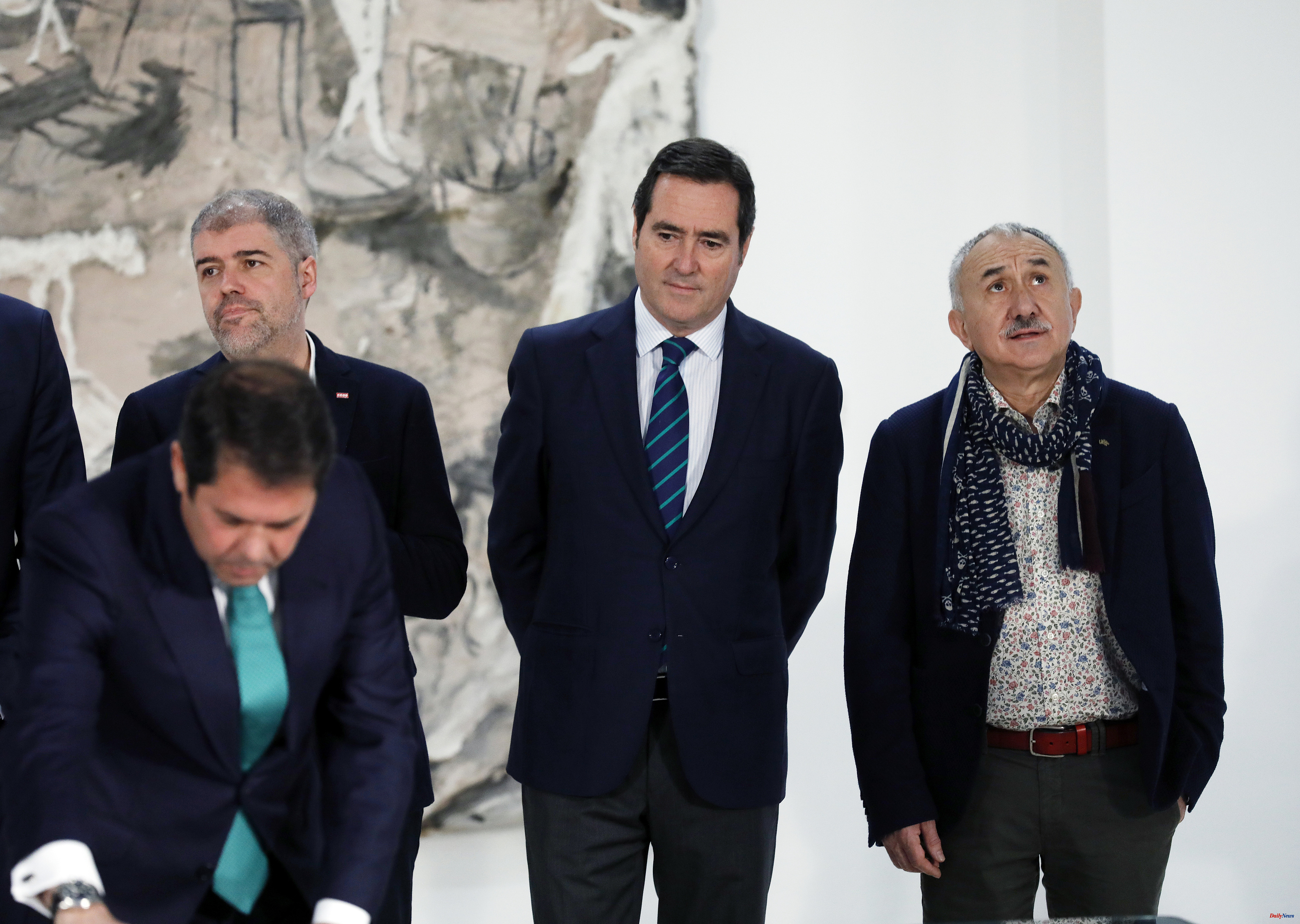The CEOE unanimously approved this Monday in the Executive Committee and Board of Directors the VAgreement for Employment and Collective Bargaining (AENC) agreed with the employers' association of SMEs, Cepyme, and the UGT and CCOO unions for the period 2023-2025, and that it recommends that companies in the country approve salary increases of 4% this year and 3% the following two, with a possible revision of up to an additional 1% in case inflation exceeds those levels.
After months of discreet negotiations, which picked up pace as of February, the social agents managed to close an agreement on Friday with the main elements of the AENC - the salary increase, the salary review clause and the decision not to touch the salaries of 2022 retroactively- and, during the weekend, they have maintained the negotiations to polish the fringes that were pending.
As confirmed by EL MUNDO, this Monday, the president of the CEOE, Antonio Garamendi, and his counterpart from Cepyme, Gerardo Cuerva, have presented the final 32-page document to the Executive Committee (a collegiate body that permanently acts in government, management, administration and management of the Confederation) that has approved the text. This morning he has appeared before the Board of Directors - made up of representatives of the federated organizations - so that he also gave his approval.
"During the extraordinary meeting of the government bodies on Monday, May 8, CEOE and Cepyme have unanimously approved the draft agreement reached in the last few hours by the CCOO and UGT unions to develop the V Agreement for the Employment and Collective Bargaining (AENC)", they reported in a statement at the end of the meeting.
For its part, the UGT Executive has also ratified the text this morning, while the CCOO will meet its Confederal Committee tomorrow at 10 in the morning, in which the union Executive and the general secretaries of the federations and territories participate.
"The internal management bodies of the UGT, in accordance with our procedures, have unanimously ratified the preliminary agreement on the V Agreement for Employment and Collective Bargaining, reached between the UGT and CCOO unions and the employers, CEOE and CEPYME", has informed the union of Pepe Álvarez.
When the union led by Unai Sordo gives its approval to the text, the agreement between the social agents can be considered closed, whose signing will foreseeably be staged on Wednesday and without the presence of any member of the Government, as this medium has already reported.
The AENC not only provides guidance to all the country's agreement negotiation tables on the recommended salary increases for this year and the following two, but also includes instructions on the management of hiring -temporary, partial, discontinuous permanent and of young people in training-, guidelines on the management of telework and generic recommendations on other labor issues.
The last AENC had been signed in 2018 and was valid for that year, 2019 and 2020. With the irruption of the pandemic, the difficulties of the business fabric and the inflationary wave of 2021 and 2022, the last two years have been difficult for employers and unions reached an agreement to renew it.
Now in 2023, at the gates of elections and with inflation already on a downward trend, the social agents have managed to reach an agreement to update this framework. The unions have been the ones that have made the biggest concessions, abandoning many of the claims they had when the negotiations began, but they are proud of having reached an agreement that "is positive for the country."
"This framework agreement is a starting point that will allow a more equitable distribution of wealth, in which all workers in our country must participate. But this agreement is also vital for our country, not only because it will relaunch our economy, but because facing the outside it facilitates confidence and highlights the importance of social dialogue, as an essential axis to facilitate the prosperity of our land and the well-being of citizens", the UGT has puffed out its chest.
According to the criteria of The Trust Project












